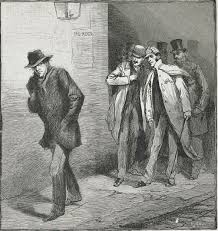Unraveling the Mystery of Jack the Ripper

Introduction
Jack the Ripper is one of history’s most notorious figures, shrouded in mystery and sensationalism. Active in London’s Whitechapel district in 1888, this unidentified serial killer committed a series of gruesome murders that have left an indelible mark on the collective psyche of society. The case remains relevant in both criminal studies and popular culture, sparking myriad theories and speculations about the killer’s identity and motives.
The Murders
The Ripper’s activities began in the autumn of 1888, when five women, often referred to as ‘the Canonical Five’, fell victim to his violent acts. These were Mary Ann Nichols, Annie Chapman, Elizabeth Stride, Catherine Eddowes, and Mary Jane Kelly. The brutality of these murders, characterized by the use of a knife and the post-mortem mutilations, horrified the public and garnered extensive media coverage, effectively initiating the first modern media frenzy.
Investigation Efforts
Despite extensive police efforts, which included the deployment of hundreds of officers and the establishment of patrols throughout Whitechapel, Jack the Ripper was never apprehended. Various letters, purportedly from the killer, were sent to the police and media, with the infamous ‘Dear Boss’ letter introducing the moniker ‘Jack the Ripper’. These letters only served to further complicate the investigation, as the authorities struggled to separate genuine communication from hoaxes.
Theories and Suspects
Over the years, speculation surrounding the identity of Jack the Ripper has produced numerous theories, implicating a range of suspects including local residents, influential figures, and even members of the royal family. Authors and historians have dissected evidence, scrutinized police reports, and even used forensic technologies to try to solve the century-old mystery. The lack of conclusive evidence keeps the Ripper’s identity an ongoing debate, with new theories continuing to emerge.
Modern Impact
The legacy of Jack the Ripper remains prevalent in contemporary media, inspiring numerous books, films, and documentaries. The case has influenced the fields of criminology and criminal psychology, provoking discussions about the nature of evil and societal responses to crime. Dark tourism has also emerged, with many people visiting the locations of the murders for an immersive historical experience.
Conclusion
As we reflect on the historical significance of Jack the Ripper, it is evident that the case reflects societal fears and the struggle to understand a mind capable of such horror. The mystery of Jack the Ripper continues to captivate and inspire, proving that even after over a century, the allure of the unknown remains powerful and relevant to modern society.









